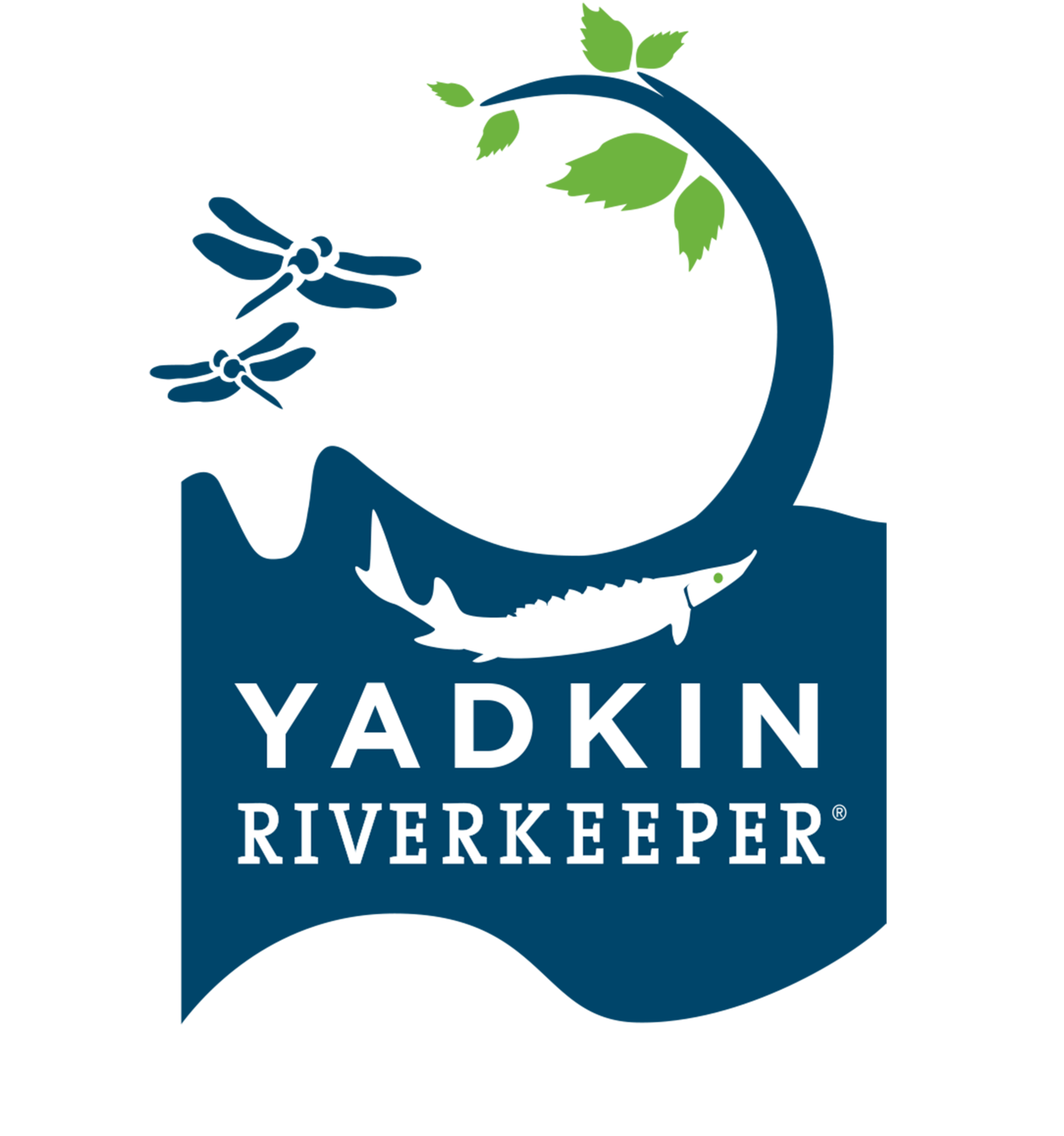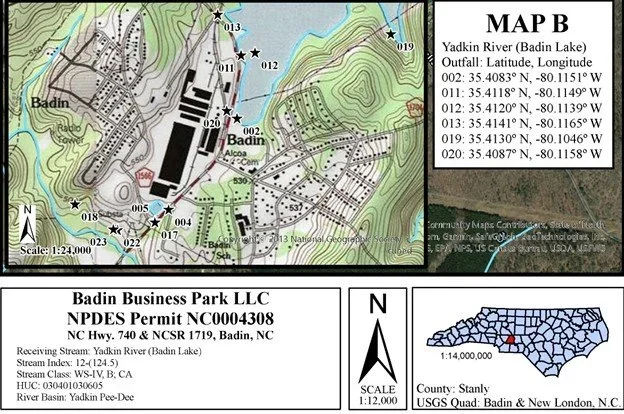By Edgar Miller, Riverkeeper
Approximately 75 people attended the North Carolina Department of Environmental Quality’s Public hearing on the National Pollutant Discharge Elimination System (NPDES) draft stormwater permit for Alcoa Badin Business Park at the Gene McIntyre Room at the Commons in Albemarle, NC on August 19. YRK staff and current and former board members testified at the hearing along with more than a dozen speakers, including representatives from the Duke Environmental Law and Policy Clinic (DELPC), Southern Environmental Law Center (SELC), the Southern Coalition for Social Justice and the NC Conservation Network, all calling on DEQ to issue the strongest permit possible to reduce the amount of contaminants going into the Yadkin River/Badin Lake, Little Mountain Creek and nearby groundwater.
Yadkin Riverkeeper Edgar Miller thanked the state officials in attendance for their diligence in reviewing YRK’s recommended changes to the draft permit and including many of them in the draft. He expressed appreciation for their efforts to listen to the West Badin community’s concerns and said the permit is a step in the right direction. Edgar emphasized the potential negative long-term impact the facility poses to the Yadkin Pee Dee watershed and the minimal cost to Alcoa to implement these new permit requirements.
Riverkeeper assistant and watershed protection specialist Nicole Eastman outlined the additional water quality protections YRK would like to see in the final permit including requiring Alcoa to ensure water quality standards for cyanide and fluoride are met in Badin Lake. Nicole also called for the removal of Outfalls 11, 12 and 13, which drain contaminated stormwater from the former aluminum smelter site into the public boating and swimming areas on Badin Lake. She also recommended a prohibition on the use of a so-called “mixing zone” in Badin Lake at Outfall 12, which allows Alcoa to discharge up to 50 times the ambient water quality standard for cyanide and relies on dilution to meet the effluent limit in the zone.
YRK water quality advocate Stephanie Stephens voiced support for changes to the permit to address community concerns, but called on the state to take action to address long-standing environmental justice concerns of the West Badin community. She asked that the state officially consider West Badin as an environmental justice community and reiterated YRK’s position that this should be the final NPDES renewal until the state finalizes and implements a cleanup plan for the site.
Badin resident and YRK Board vice president, Colleen McDaniel, and Badin Lake resident and YRK board member, Nicci Gafinowitz, who co-chair Protect Badin Lake, also supported eliminating the mixing zone and the Outfalls draining into the Lake. They discussed the impact of the facility on recreation and economic development in the region. Former YRK board member David White expressed his concern that contaminated stormwater from the facility would negatively impact the Yadkin River State Paddle and recreational use of Badin Lake and the Yadkin River in general.
Duke ELPC director Ryke Longest and staff scientist Dr. Nancy Lauer focused on the purpose of the permit to reduce and eliminate water pollution and the need for more frequent monitoring, limiting the use of the mixing zone and additional bilingual signage to inform the public about potential discharges of contaminated stormwater.
Jasmine Washington, SELC staff attorney, reminded DEQ officials of their responsibilities under Title VI of the federal Civil Rights Act and highlighted the environmental justice concerns of the Concerned Citizens of West Badin. Will Hendrick, environmental justice director for the NC Conservation Network, echoed those concerns, and highlighted several areas for improvements in the state’s review of environmental justice issues.
Two Badin Town Council members and the owner of the Badin Inn talked about Alcoa’s past and present support for the Town and encouraged the state to not make any major changes to the permit. Alcoa representatives generally portrayed the changes to the draft permit as “unnecessary” and that Alcoa would comply as it has in the past, albeit leaving out the part about the more than 20 violations of it’s current NPDES permit, including one attributed to the recent demolition of the smelter buildings.
The state has 90 days from the hearing date to make any final adjustments to the permit and issue it by November 19. After the issuance of the NPDES stormwater permit, attention will turn to the development of the final Resource Conservation and Recovery Act or “RCRA” Corrective Action Plan and permit, which will determine the fate of site that still contains hazardous waste buried in unlined trenches and contaminated soil.
The Duke ELPC and SELC have submitted written comments on the Yadkin Riverkeeper’s behalf. YRK appreciates everyone who sent in written comments. They will make a difference in the state’s final permitting decisions.

